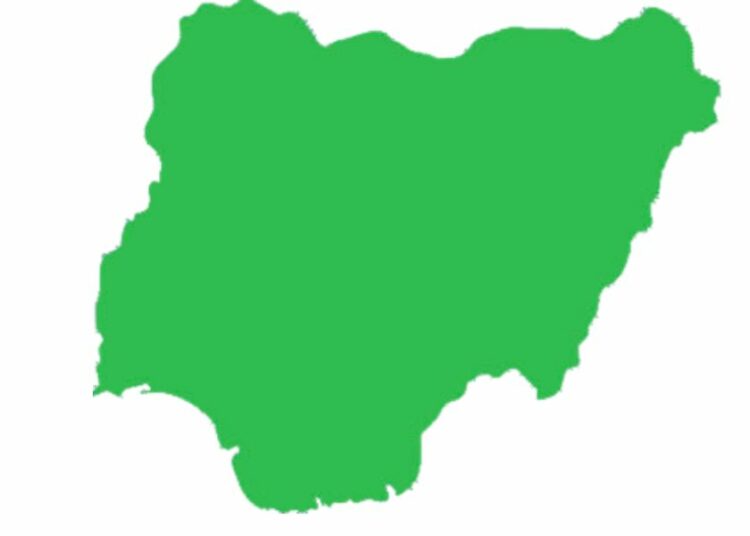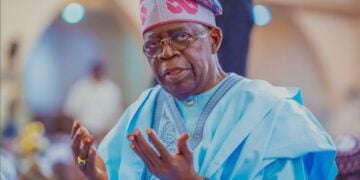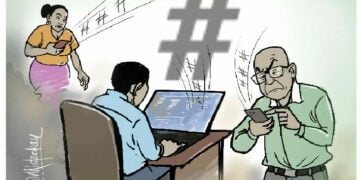In Nigeria, the quest for national unity remains an ongoing challenge. Historical rivalries and divisions persist, often manipulated by politicians for personal gain. Citizens strongly identify with their ethnic groups, and social media amplifies these divides, contributing to the lack of unity. Amidst these tensions, one thing stands out as a cultural unifier: jollof rice. Despite our differences, jollof rice is widely embraced across ethnic, religious, and socio-economic lines. It transcends boundaries, bringing people together in a shared experience. There must be something about this meal that we can learn from and apply to our pursuit of national unity.
Back in history, during the First Republic, The Western, Eastern, and Northern Regions each had distinct identities, with political parties emerging along ethno-regional lines. The Action Group (AG) represented the Yoruba West, the National Council of Nigeria and the Cameroons (NCNC) represented the Igbo East, and the Northern People’s Congress (NPC) represented the Hausa/Fulani North. The Northern region’s dominance in parliament, with more seats than the Eastern and Western regions, fuelled resentment among Southern politicians, sparking political chaos and exacerbating regional tensions.
In 1947, Chief Obafemi Awolowo said “Nigeria is not a nation. It is a mere geographical expression. There are no ‘Nigerians’ in the same sense as there are ‘English,’ ‘Welsh,’ or ‘French,’ The word ‘Nigeria’ is a mere distinctive appellation to distinguish those who live within the boundaries of Nigeria and those who do not”. In 1948, Sir Abubakar Tafawa Balewa echoed his thoughts thus “Since 1914 the British Government has been trying to make Nigeria into one country, but the Nigerian people themselves are historically different in their backgrounds, in their religious beliefs and customs and do not show themselves any signs of willingness to unite … Nigerian unity is only a British invention” and in 1964, Dr Nnamdi Azikiwe crowned the debate with “It is better for us and many admirers abroad that we should disintegrate in peace and not in pieces. Should the politicians fail to heed the warning, then I will venture the prediction that the experience of the Democratic Republic of Congo will be child’s play if it ever comes to our turn to play such a tragic role” These quotes from the three wise men of Nigeria – Awolowo, Balewa, and Azikiwe – reveal a shared skepticism about national unity. Despite their influential roles, they promoted regionalism over nationalism. Their views offer valuable insights into the complexities that we experience today.
Nigeria still grapples with identity-driven conflict, where ethnic affiliations often take precedence over national identity. In everyday conversations, people are frequently identified by their ethnic group – ‘Hausa/Fulani man,’ ‘Igbo man,’ ‘Yoruba man,’ or ‘Igala man’ – rather than their nationality. I have deliberately focused on ethnicity, not to diminish the role of religion in Nigerian society, but to untangle the complex interplay between these two crucial aspects of identity. While both ethnicity and religion are significant, one often informs the other, and understanding this dynamic is essential to grasping the root causes of our societal challenges.
In Nigeria conflicts can be broadly categorized into ethnic, religious, and the complex interplay of both. Ethnic conflicts likely account for a significant portion of the country’s strife, fueled by competition for resources and power. While religious differences contribute, ethnicity appears to play a more prominent role. The presence of 371 ethnic groups and three main religions (Christianity, Islam, and Traditional worship) underscores the significance of numbers in conflict causation. Notably, conflicts with intertwined ethnic and religious dimensions, while present, may not be as prevalent as often assumed. The varying dynamics of conflict across states, with areas like Kaduna, Plateau, and Taraba experiencing more frequent clashes due to high ethnic diversity, whereas states like Bayelsa and Akwa Ibom have seen fewer conflicts due to their relative homogeneity, further highlight the pivotal role of ethnicity in shaping Nigeria’s conflict landscape.
Our history of regionalism and ethnic politics is still causing problems today. In Plateau State, conflicts keep happening because of tensions between “indigenes” and “settlers,” land disputes, and clashes between farmers and Fulani herders. The arable and fertile land in the state and its appealing location attract people from all over. This, however, creates competition for resources and power. Old issues from colonial times and politicians playing identity politics make things worse. This leads to violence, culminating in people being forced to leave their homes, not forgetting the corollary of humongous humanitarian problems. It’s a tough situation that needs a very thoughtful solution.
The conflicts in Plateau State are largely about who “owns the land” and who doesn’t. Places like Jos North, Bassa, and Kanam have seen a lot of tension between indigenous communities and settlers. In other areas like Riyom and Barkin Ladi, land disputes are a big issue. The fertile land in areas like Bokkos makes things even more competitive. To solve these problems, policymakers will need to look at the ethnic side of things, especially the native-settler issue, rather than just focusing on religion. It’s a complex mix of factors, including history, politics, and resources, that enable the conflicts. It also highlights the complexity of managing territorial and identity issues. These incidents show how difficult it is to manage diversity and get different groups to live together where many cultures coexist.
Addressing the indigene-settler divide requires more than just rhetoric; it demands genuine political will and commitment from leadership. Policymakers must prioritize mediation to balance power dynamics, and warring factions must be willing to negotiate and compromise. This entails moving beyond token gestures to meaningful action. By doing so, we can build trust, foster a sense of belonging, and create an environment where diverse groups can coexist peacefully, ultimately paving the way for sustainable peace and development.
Imagine Nigeria as a big family where everyone works together in harmony. We’d blend different music styles like Afrobeats and Highlife to create something beautiful. We’re not so different; we’re just figuring things out together. By embracing our differences and working together, we can create something amazing – like a delicious jollof rice that brings everyone together. And who doesn’t love jollof rice? Maybe we can even become experts at building peace, and share our jollof rice with the world. Let’s come together and enjoy the meal.
–Ocheja, a scholar, specialises in the intricate military histories of Nigeria and Africa.





